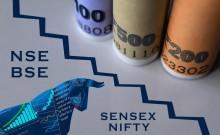With the United States closing in on full employment, and inflation likely to rise to target levels, the "next step" should be to start gradually increasing rates, a top U.S. central banker, said on Saturday, 7 November.
"I do think it makes sense to gradually remove the policy of accommodation that helped get the economy to where we are," John Williams, President of San Francisco Federal Reserve Bank told the Arizona Council on Economic Education.
The comments suggest that Williams, a centrist policymaker who was Fed Chair Janet Yellen's chief researcher when she had his job before moving to Washington, is leaning towards support of a December rate hike.
Asked afterwards if leaning for support is indeed true, Williams declined to comment, adding that he expects "a lot of data" between now and then.
"I am going to wait and see on that," he said.
The Fed has kept interest rates near zero for almost seven years, and the central bank last month said it would consider a rate increase at its 15 and 16 December meeting.
The explicit nod to the Fed's next meeting sent traders scrambling to boost bets on a December move – bets that only got bigger after a government report on 6 November showed the economy added many more jobs than expected in October this year.
A Reuters poll of top bond dealers also showed a growing number of expected borrowing costs to go up next month, with 15 of 17 looking for an increase.
Inflation has suffered below the Fed's goal for years, prompting a few Fed policymakers to still favour waiting on a rate increase until there is better evidence that prices are indeed firming.
On 7 November, Williams said he believes that factors holding inflation down, including weak oil prices and a strong dollar should soon ebb and allow inflation to bounce back.
Beginning rate hikes sooner than later would allow a "smoother, more gradual process of policy normalisation," Williams said. The Fed will likely need to raise rates more slowly than the last time it tightened policy in 2004-2006, because of persistent headwinds holding back growth, he told reporters afterwards.
Asked how slowly, Williams said investors could draw inferences from the Fed's quarterly economic projections.
Raising rates will send a positive signal about the economy and could spur some home buying that had been deferred, he said.

















